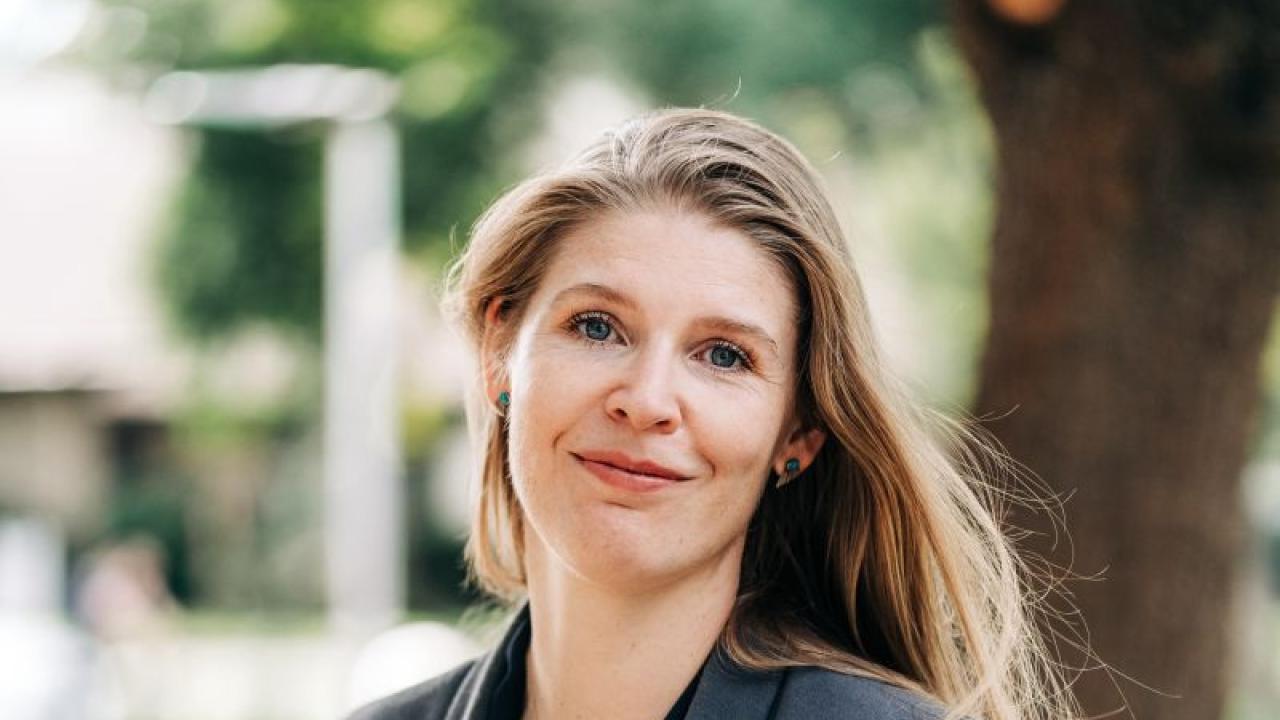
CAMPOS Faculty Scholar Maike Sonnewald Awarded $1 Million NSF grant
The National Science Foundation (NSF) through the Collaborations in Artificial Intelligence and Geosciences (CAIG) program has awarded a $1 million grant to Maike Sonnewald for her study to develop an Artificial Intelligence (AI) system to analyze satellite and ocean data, measuring how ocean currents affect heat storage. As a faculty scholar of Center for the Advancement of Multicultural Perspectives on Science (CAMPOS) program, oceanographer and assistant professor of computer science, Sonnewald contributes to ocean and climate understanding and resilience.
The U.S. National Science Foundation has announced funding for 25 projects, totaling more than $20 million, through the CAIG program. Sonnewald’s project has set out to develop a sophisticated AI technique and 15 years worth of ocean datasets to analyze satellite measurements and high-resolution ocean model outputs. Her team plans to track changes in ocean fronts and mixed-layer heat content over time, providing insights into how the ocean’s processes influence the ocean's heat storage. Their approach ensures the AI system will be interpretable and its uncertainties quantifiable. Using a state-of-the-art, global ocean-atmosphere model, researchers will train physics-informed vision transformer (ViT) algorithms to assess the drivers of heat inventory and front variability. The system will also measure how the drivers have changed from past to present, and assess the likelihood of future change.
Sonnewald leads the Computational Climate and Ocean Group at UC Davis. Her work targets grand challenges to improve ocean and climate understanding and resilience. Sonnewald's interests include sea level, climate modes (such as the El Nino Southern Oscillation), basin-scale ocean dynamics and biogeochemistry. Her goal is to discover the underlying principles that govern ocean dynamics from small to global scales. Sonnewald joined UC Davis in 2023 as a CAMPOS Faculty Scholar for her commitment to diversity and equity in science and higher education.
The impact of Sonnewald's work spans academia and policy. It is featured in the National Oceanic and Atmospheric Administration (NOAA) AI strategy 2021-2025, and used in the science basis for New Zealand's Marine Protected Area legislation. She has been cited by the European Parliament and the World Meteorological Organization. Her more than 60 invited talks include the United Nations' International Telecommunication Union , NOAA research and the U.S. Department of Energy, as well as colloquia and major conferences. She is an Associate Editor for the Artificial Intelligence for the Earth Systems (AIES) journal by the American Meteorological Society and has authored numerous review articles.
Learn more about Sonnewald’s lab.
